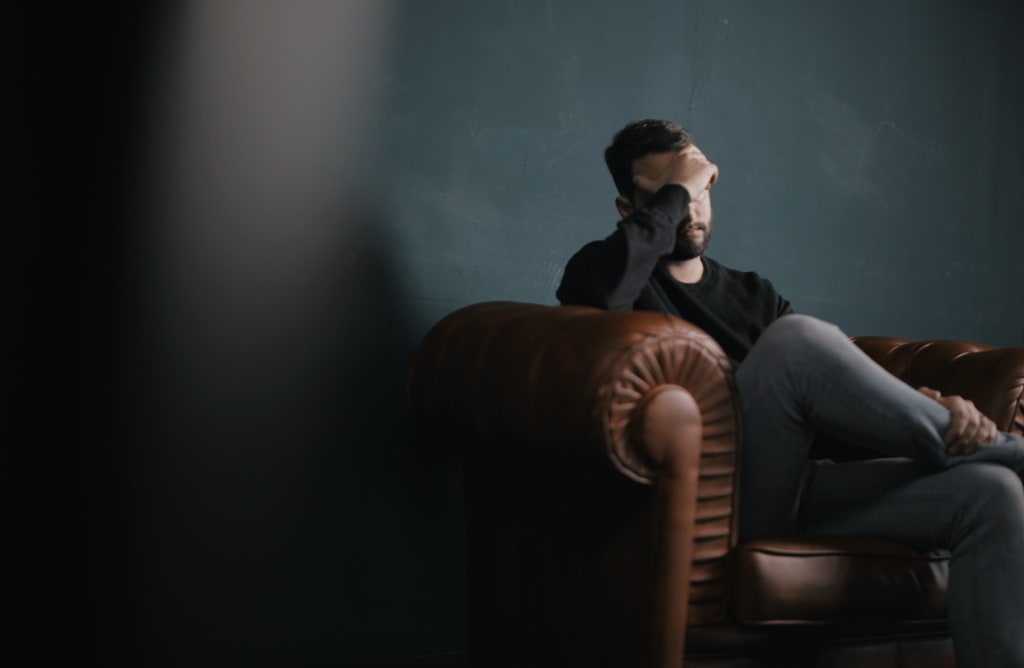
We have seen that some people are facing anxiety problem in their life. And some people have this kind of problem on the extreme level which can appear in a variety of ways like fear, concern, unease, or apprehension. Although anxiety is a natural part of life, when it overpowers a person, it can negatively affect both their physical and mental health as well as their ability to operate on a day-to-day basis.
So here is a question about why majority of the people face anxiety in their life?
There are many factors that can contribute to the development of anxiety, including:
Genetics
Anxiety can run in families, suggesting that there may be a genetic component to the disorder.
Brain chemistry
Imbalances in certain brain chemicals, such as serotonin and dopamine, can contribute to the development of anxiety.
Trauma
Experiencing a traumatic event, such as abuse or a natural disaster, can increase the risk of developing anxiety.
Environmental factors
Factors such as a stressful work environment, financial difficulties, or a tumultuous home life can all contribute to the development of anxiety.
Medical conditions
Certain medical conditions, such as thyroid disorders or heart disease, can increase the risk of developing anxiety.
Substance use
The use of certain substances, such as alcohol or drugs, can contribute to the development of anxiety.
But still, there are many methods of controlling the anxiety problem in this modern era.
People from all ages can apply these best practices in order to reduce the anxiety.
Identify Triggers
Identifying triggers can be an affective step in controlling anxiety. A trigger is something that causes anxiety or sets it off. It could be anything, such as a particular situation, person, thought, or event. Once you identify your triggers, you can begin to avoid them or learn coping mechanisms to deal with them.
Practice Deep Breathing
Deep breathing is a relaxation technique that can help to calm the mind and body. When we feel anxious, our breathing tends to become shallow and rapid, which can bad anxiety symptoms. By taking slow, deep breaths, we can activate our parasympathetic nervous system, which helps us to feel more relaxed. This actions can be practiced anywhere, and it only takes a few minutes to complete.
Exercise Regularly
Exercise is a natural stress reliever and mood booster. Regular physical activity can help to reduce anxiety symptoms and improve overall mental health. For example if a person do exercise in a GYM or go for a walk where he/she will see green trees and flowers then there is a chance that he/she can control this problem as compare to others who are not doing these kind of activities.
Use Positive Self-Talk
The way we talk to ourselves can significantly impact our mood and anxiety levels. Negative self-talk can worsen anxiety symptoms and lead to a vicious cycle of negative thoughts. Instead, try to use positive self-talk. This involves replacing negative thoughts with positive ones, such as "I can handle this" or "I am strong and capable." Positive self-talk can help to shift the focus away from anxious thoughts and promote a more positive mindset.
Get Enough Sleep
Sleep is very important factor for managing anxiety. Lack of sleep can worsen anxiety symptoms and lead to a cycle of anxiety and sleeplessness. It is recommended that adults aim for seven to nine hours of sleep per night. To improve sleep quality, try to establish a consistent sleep routine, avoid caffeine and electronics before bedtime, and create a comfortable sleep environment.
Seek Professional Help
In some cases, anxiety can be severe and may require professional help. Mental health professionals can provide effective treatment for anxiety, including therapy and medication. Therapy can help individuals learn coping strategies and techniques to manage anxiety symptoms, while medication can help to alleviate symptoms. If you are experiencing severe or persistent anxiety symptoms, it is important to seek help from a mental health professional.
To sum up, anxiety is a common experience, but it can be managed and controlled with the right strategies. By identifying triggers, practicing deep breathing, exercising regularly, using positive self-talk, getting enough sleep, and seeking professional help when necessary, individuals can learn to manage their anxiety and improve their overall mental health.
About the Creator
Junaid
I am a graduated person and I am here to share my thoughts with those who like to read articles.






Comments
There are no comments for this story
Be the first to respond and start the conversation.